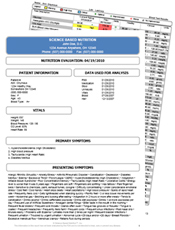Unfortunately, the body cannot produce all the vitamins we need. However, one nutrient it does make which is very important to our health, especially the health of our heart and blood vessels, is Coenzyme Q, also known as Ubiquinone or Ubiquinol.
Levels of Coenzyme Q, are known to be highest when we are in our twenties. This nutrient decreases with age and tends to be low in patients with some chronic diseases such as heart conditions, muscular dystrophies, Parkinson’s disease, cancer, and diabetes just to name a few. (1)
This nutrient is essential for the body as it helps produce energy and protects cells from oxygen damage. Coenzyme Q aids the mitochondria of our body’s cells to utilize fat and other substances and convert them into energy. Amazingly, research has shown that supplementation with coenzyme Q can produce up to 95% less damage to cell membranes. (2) Since the 1970’s, clinical studies have also shown that the oral administration of CoQ10 improves the health of patients suffering from heart problems. (3)
For example, in clinical trials of patients with congestive heart failure, significant improvement of the ejection fraction of the heart (the heart’s ability to move blood) and improvement of the left ventricle (the part of the heart that sends blood out to the body) were seen after taking 580 mg of ubiquinone (Coenzyme Q) per day. (3)
Toxicity studies using up to 1200 mg per day has shown no concerns. The high level of protection has prompted clinicians to use Coenzyme Q supplementation for conditions that affect the heart muscle including:
Angina
Heart attacks
High blood pressure
Coronary artery disease
Atherosclerosis
Congestive heart failure
Some prescription drugs may be lowering your levels of Coenzyme Q, especially statin medications. One study published in the Journal of the American Medical Association showed a 22% decrease in Ubiquinol levels in patients using simvastatin (Zocor), while other studies suggest that statins can reduce serum levels of coenzyme Q10 by up to 40%! (3)
It has been shown that long term use of statin medications can increase the risk of nerve damage and muscle tissue. Dr. Pina LoGiudice, a natural medicine expert, recommends anyone taking these medications should consider adding supplemental CoQ10 in the form of ubiquinol to their daily regimen. Ubiquinol is naturally high in beef, chicken, fish, and even broccoli.
There are different forms of Coenzyme Q available for supplementation.
Ubiquinone is more common and widely known because it is the form most commonly sold commercially.
Ubiquinol is the strong, antioxidant form.
When purchasing CoQ10, if the bottle doesn’t mention which form it is, it is usually Ubiquinone as this is the cheaper of the two forms. As we age, the ability for the body to metabolize and break down Ubiquinone into Ubiquinol is reduced. As demonstrated in studies, ubiquinol has superior bioavailability to ordinary ubiquinone, which means it gets absorbed into the body and blood stream much better. (3)
Although supplementation with Ubiquinol and other vitamins and minerals is important to ensure protection against diseases, it does not replace eating right and exercising. But for extra support and for insurance against gaps in your diet, supplementation with vitamins and minerals is suggested by many health professionals for optimal health. (4)
Several supplements can be taken which may offer some additional protection for the heart:
- Vitamin C: 2,000 mg/day
- Vitamin E: 800IU/day
- Mixed tocopherols and trienols
- CoQ-10: 900mg/day
- Selenium: 200mcg/day
- L-Carnitine: 1000mg/day
- Magnesium: 200mg/day
The amount of different vitamins and their dosages depend on the person. An individualized plan can be constructed for you by an experienced nutritionist with a comprehensive blood and tissue mineral analysis.
Don’t just guess at what you need. Know exactly what to take and how much to take by getting tested first. Call us today to schedule your appointment for a complete program prepared specifically for what you need.
References:
- http://www.mayoclinic.com/health/coenzyme-q10/NS_patient-coenzymeq10
- The World’s Healthiest Foods. The George Mateljan Foundation 2001-2013. http://www.whfoods.co/genpage.php?tname=nutrient&dbid=118 Accessed on November 27, 2013
- Pina LoGiudice ND, LAc and Peter Bongiorno ND, Lac. Ubiquinol: An ally against aging Inner Source Health Posted on 1/03/2012
- Dr. Weil, Andrew. Why should I take a vitamin for my health? Today Health. 9/22/05

